Where the Creativity of Business Meets Art
Sixth Interview: Communication × Creativity (Part 2)
28 June 2024
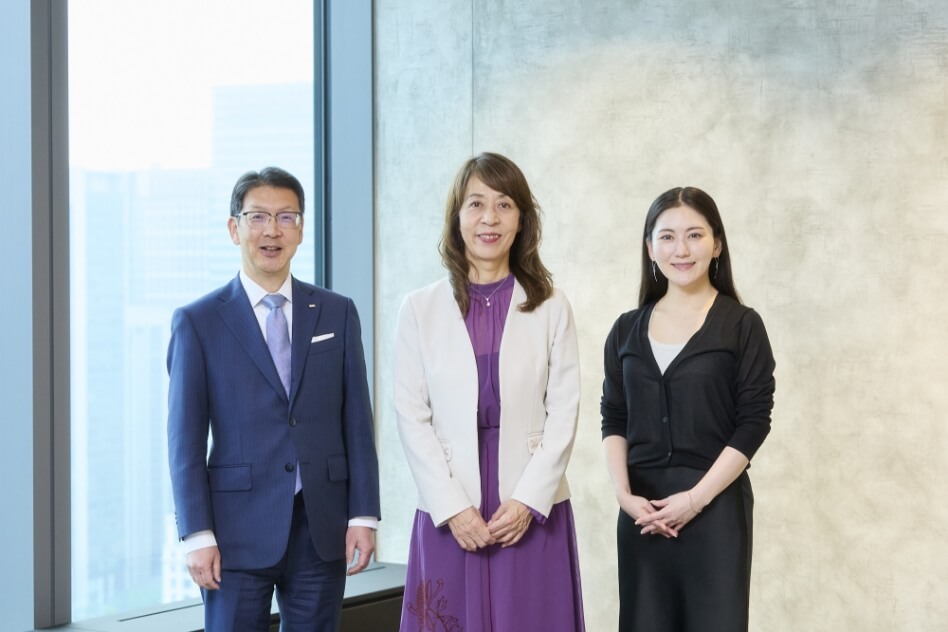
"We must not make the mistake of thinking that the world before us somehow extends to the world beyond us. Step-by-step measures are essential in getting there." (Okuda)
Okuda: The changes of the past ten years have been remarkable. One is that CO2 has become something that creates value. It is no longer simply an environmental issue but a business one, as CO2 has become profitable, accelerating the movement to add more value to activities that do not emit CO2. That’s one reason why renewable energy is rapidly gaining traction and is one of the biggest changes we have seen. But then, just as the world began to focus on carbon emissions, Russia invaded Ukraine, reigniting issues of energy security. Then came further problems in the Middle East and the issue of world division. Renewable energy may be viable in the future, but with a fragmented economy, obtaining the fuel needed for immediate energy production will be challenging, causing problems worldwide. Thus, countries are re-evaluating their energy security policies. Hence, the way energy providers have had to operate has shifted dramatically in the past decade. Investments in power plants are on the order of hundreds of billions of yen and are only recouped over a period of 15 to 20 years. If major environmental shifts during this time render the investment unviable, it would cripple the energy business. Amid these challenges, JERA finds itself at the heart of the turmoil.
Yoshitaka: But banks and investors are the ones who pay for it. Energy prices will likely continue to rise, something we will all start to feel since it directly affects all our lives, mine included.
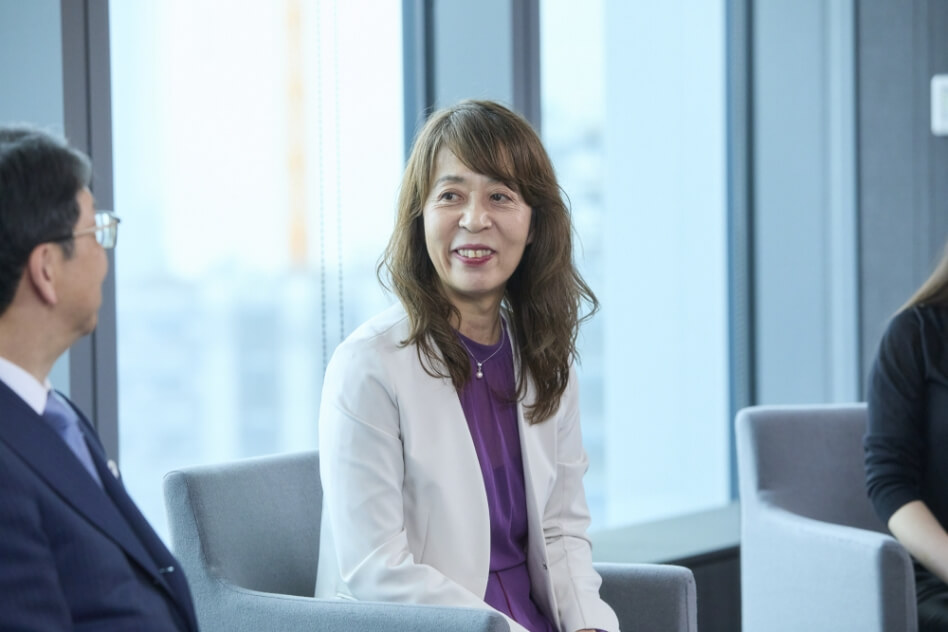
Okuda: Whether in Austria, where Ayako lives, or in Japan, power outages are rare. Despite all the turmoil, we are able to use gas and electricity as usual. But this isn't the case worldwide. Environmental shifts and the outbreak of war have sowed global divisions and disrupted the stable supply of energy, particularly in developing countries. So my concern is that we will start seeing entirely different claims made by developed and developing countries. Everyone should have the right to energy and food. We must create a situation where everyone can obtain clean energy at a reasonable price. The same goes for food, where everyone can afford a full belly. But the current situation is very precarious.
Tanaka: We tend to take things for granted in our daily lives. Hearing stories like this makes me feel very close to the situation and makes it easier to think about what I can do to help. For example, in Austria, if your electricity usage is less than the previous year, you are given a refund at the end of the year. It makes me wonder if there is something tangible like that here in Japan.
Yoshitaka: No, that kind of cashback scheme doesn’t currently exist in Japan.
Okuda: Dr. Yoshitaka, you are trying very hard to put a value on CO2, but it is difficult to add value to the electricity we generate and sell.
Yoshitaka: I suppose Europe already has a mature market.
Okuda: We are trying to create a carbon pricing model like in Europe, but if there is no demand from the customer side, we cannot expect a rise in price. To put this into music terms, people who don’t want to listen to music won’t pay to buy a CD or go to a concert. Without proper demand, a product has no monetary value. So if there aren't enough people who want electricity that doesn't emit CO2, such products will eventually vanish because they won't be seen as valuable. Without regulatory measures that clearly state that there will be constraints on our activities unless CO2 emissions are reduced, people won’t be willing to pay for it.
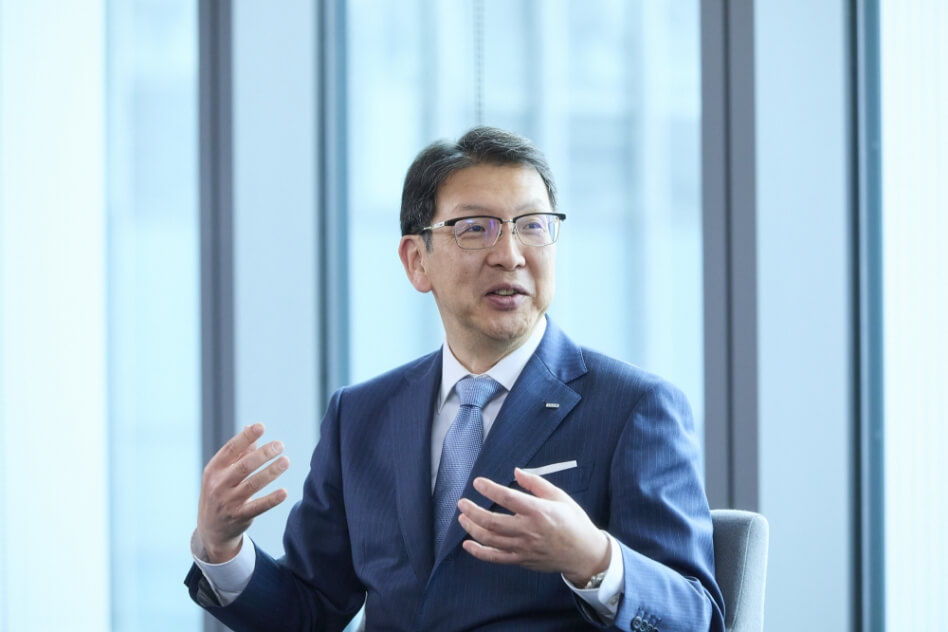
When you live in developed countries like we do, you tend not to think much about developing countries, which is a big problem. We explained how the focus on CO2 has altered the landscape of environmental issues, but the lives of people in developing countries are still directly affected by air and water pollution. There are many places where SOX and NOX problems have yet to be resolved. While CO2 may be the issue for developed countries, it's a different story for developing countries. Many want to first reduce the SOX and NOX that billow out of their power plants. They want to do something about the pollution in their drinking water. People living in developed countries must not make the mistake of thinking that the world before us somehow extends to the world beyond us. Step-by-step measures are essential in getting there.
As each country sets its path, finance and technology leaders, end users, and representatives from developing countries must come together and consider the best ways forward. (Yoshitaka)
Yoshitaka: Around year 2000s, countries like Somalia or Ethipia were facing humanitarian issues and everyday hardships, so the aggressive pursuit of emission credit trading—even if intended to create new energy solutions—still felt inappropriate. On the other hand, at the time, it was generally thought that Japan, with its technology, should take a strategic approach toward developing countries like India and China. But then, after the Great East Japan Earthquake, when our business partners in Asia reached out to express their concern for Japan, they told us that while Chinese and Korean business people had been visiting Japan, their Japanese counterparts had not been coming to them in recent years. What Mr. Okuda said is something I have been thinking about for a long time—the world is changing, and one size does not fit all. Every year, when I attend international climate change negotiations, I realize that things really are changing.
Okuda: As each country continues to grow at its own pace, the stages of their growth also change. We must recognize that every country is at a different stage in its development and provide the best solution for each. That, I believe, should be the role of developed countries.
Yoshitaka: At COP28 held in Dubai last year, the word "transition" was used a lot. Of course, it’s good to set lofty goals. However, I also strongly feel that as each country sets its path, finance and technology leaders, end users, and representatives from developing countries must come together and consider the best ways forward. Despite its value being intangible, CO2 has become relatively well-established as a commodity. And while it’s hard to put a price on the value of nature, we do have a mechanism at our disposal known as biodiversity credits. In behavioral economics, it's often said that people cannot act on something unless they can visualize it. Ayako, I’m certain you have many goals you want to achieve. That’s why it’s crucial to think about how to visualize them effectively. With money now beginning to flow into the environmental value of a business, Ayako and I frequently discuss the potential for her ideas. Yet, money seems to get siloed in the music industry, which makes it quite challenging.
Students today are extremely interested in emission credits. (Yoshitaka)
That, to me, indicates that it has become mainstream. (Okuda)
Okuda: That seems like a mistake to me. You find vertical silos everywhere, don’t you? There was a time when classical music was considered special, something that ordinary people shouldn't listen to, that only the intelligentsia could appreciate. In that kind of world, value doesn’t stick. Conversely, no one is working very hard to add value to the music industry, so it’s becoming increasingly divided. Isn't that one reason why you've popularized the value of CO2, Dr. Yoshitaka?
Yoshitaka: Students today are extremely interested in emission credits.
Okuda: That, to me, indicates that it has become mainstream.
Yoshitaka: Maybe this idea will become more mainstream, and we’ll have “music credits” someday. People tend to resist change and cling to tradition, so even though they may want to try something new, it can be difficult to make a change. For example, I think there is great value in Japanese Shinto rituals, but on the other hand, people say that Japan is a country without religion. There are now well-being indices that quantify human happiness. I have often thought about visualizing cultural values and the value of beliefs in line with these indicators. But doing something like this would probably spark some huge controversies (laughs).
We can’t create new value without forums for open discussion and discovery between people with different values. (Okuda)
Okuda: One recurring theme from today's conversation may be how difficult yet important it is to ascribe value to things we can't see. In my discussions with Ayako, we began with the topic of creativity. And to ascribe value to something intangible, you need both imagination and creativity. Without them both, assigning value to something you cannot see is impossible, so we need to think about how we can nurture these skills in our talent. And you won't find anything about this in MBA textbooks. In fact, it runs contrary to what’s taught. Imagination and creativity are nurtured by playing in nature as a child, listening to good music, and encountering good art. But our society will not place value where it should unless we raise individuals who appreciate these experiences.
Yoshitaka: We also try to match students who come up with new ideas with companies. Companies can turn 1 into 10, but education is where you shape 0 into 1, which is so important.
Okuda: We can’t create new value without forums for open discussion and discovery between people with different values. That’s why we host these crossover dialogues and other expert salons for our employees. Recently, we invited an entomologist for a talk at JERA, who talked about how the world looks from an insect's point of view. I always find talking to people with different perspectives incredibly fascinating. In the process, we hit upon new business opportunities, and I think the same applies to art. I suspect being exposed to new perspectives might change the way you sing or lead to a new interpretation of a piece of music.
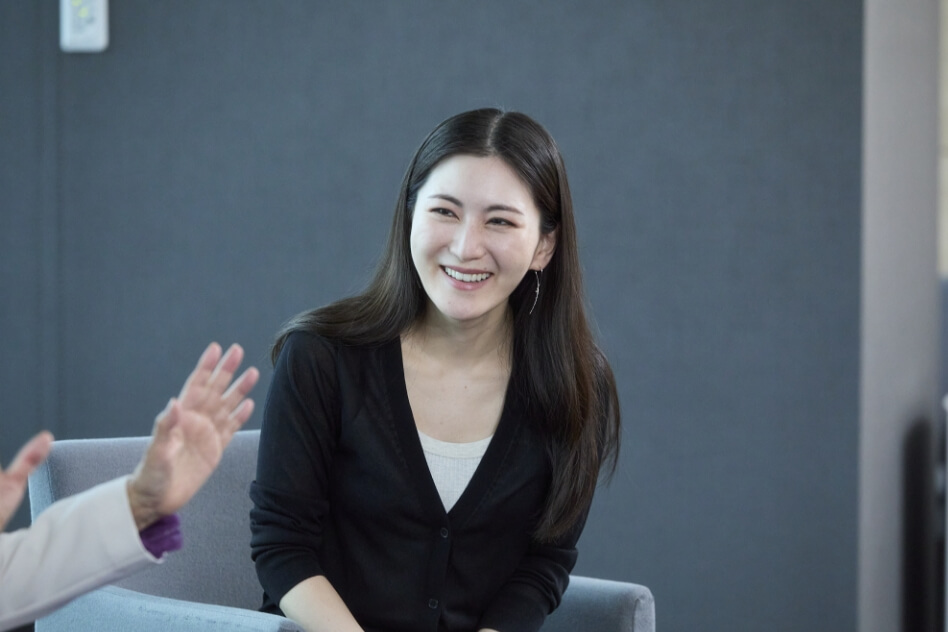
Tanaka: Absolutely! The way I sing now is completely different from three years ago, even for the same song.
Okuda: That's fascinating. I think that art, in particular, carries with it a real reflection of the zeitgeist.
Yoshitaka: What you’re doing is so valuable, especially because so few Japanese managers engage in these kinds of crossover conversations.
Okuda: Many people at JERA come to me and ask, “Why should we listen to an entomologist?" I tell them that the reason they’re asking is precisely why we need to listen (laughs).
I'm not an expert in any one field, but I've always thought that by talking with people who have different values, we might be able to find new solutions (Yoshitaka)
Yoshitaka: I see. Most of my friends aren't business people, so I always get new ideas when I talk to them. I’m also able to empathize with my students. Even if these conversations don't have some creative outcome, I believe that connecting with people and having empathy is important.
Okuda: In my opinion, we are disqualified as business people if we remain complacent after having a crossover dialogue. It is our job to turn these exchanges into real opportunities, transforming them into independent and sustainable businesses. And while they may not need to make money hand over fist, a business can only be considered successful once it earns a reasonable profit. Too many people can talk a good talk but can’t turn that talk into business. Then, there’s the opposite—business-savvy people who lack creativity. That is something that we can compensate for as an organization, which is why I think it boils down to how important it is to create an environment where people with different values can come and work together.
Yoshitaka: There is an old movie called Mindwalk. The film is about a US presidential candidate, a poet, and a Norwegian physicist traveling to Mont Saint-Michel in France. They discuss their own problems and society's issues all the way through, and each departs applying the lessons they’ve learned to their lives. It’s a film that is very close to my heart. While I studied the environment in graduate school, I'm not an expert in any one field, so I've always thought that by talking with people who have different values, like in this movie, I might be able to find new solutions. Our discussion today brought back memories of that movie and how I felt then. It would be interesting to work together on something following our discussion today.
Tanaka: Historically, artists, researchers, and experts have gathered at parties to exchange ideas at the intersection of different cultures, specialties, and disciplines. Some of the ideas born from these ancient exchanges are still relevant today. Now, more than ever, with the world so divided, I believe mixing everything together would help generate innovative new ideas.
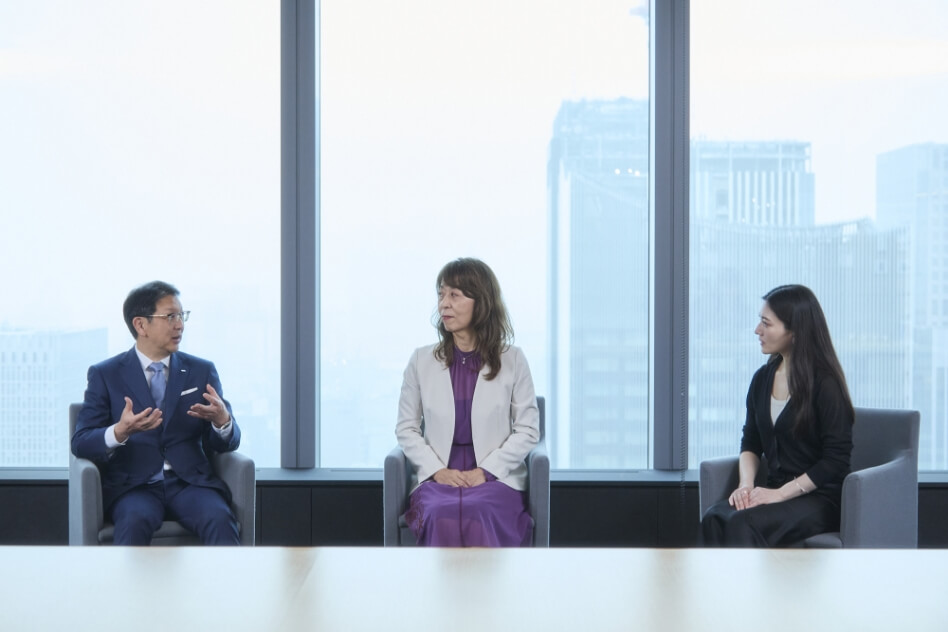
Okuda: Many American companies are creating spaces for just that. The exciting thing is that artists, scholars, and financial institutions are expressing interest in what we're doing. I believe we should begin by slowly building a network of allies and working together with them.
Yoshitaka: With new initiatives, we’re talking less about CO2 and more about natural capital systems these days. This year, a global plastic pollution treaty is being negotiated by UN member states, and new issues continue to emerge, showing that there is no end in sight to environmental problems.
Okuda: Thank you for your time today. I really enjoyed our discussion. I think you’ve given us plenty of insights on how to add value to the things that we cannot see.
Postscript
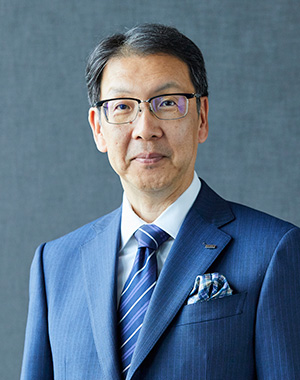
Our discussion today made me realize the difficulties and joys of ascribing value to things that are either intangible or otherwise go unnoticed. Dr. Yoshitaka has made a career of doing just that by promoting CO2 emission credits in Japan. Ayako is tackling similar issues in music, making the value of classical music more widely understood. JERA aims to break down the value of electricity, making it easier to trade energy. Different power sources provide different modes of electricity generation, and the electricity they produce differs in terms of environmental value and flexibility. If done well, the optimal combination of power sources can help us achieve decarbonization, energy security, and economic viability through market transactions. There is a bumpy road ahead, but we are committed to utilizing the latest digital technologies to rise to the challenge.
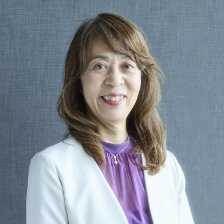
Mari Yoshitaka
Fellow (Sustainability), Mitsubishi UFJ Research and Consulting
Master of Science, Graduate School of Environment and Sustainability (now), University of Michigan, USA, Graduate School of Media and Governance, Keio University Doctor of Philosophy (Ph.D.). Visiting professor at the University of Tokyo's College of Arts and Science.
After working for an IT company, a US investment bank, and the Environmental Technology Department of the International Finance Corporation (IFC) of the World Bank Group, Yoshitaka launched the Clean Energy Finance Department at Mitsubishi UFJ Morgan Stanley Securities in 2000. She has been in her current position since May 2020, concurrently serving in MUFG Bank and Mitsubishi UFJ Morgan Stanley Securities.Yoshitaka is also a member of various national councils.
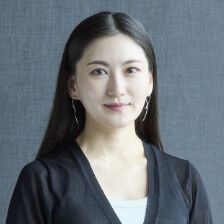
Ayako Tanaka
Soprano singer
President, Japan Association for Music Education Program
At the age of 18, Tanaka traveled to Vienna alone to study. At 22, she made her debut at the Stadttheater Bern in Switzerland, becoming the youngest soloist ever in the theater and the first Japanese person to perform there. Since then, she has performed in Vienna, London, Paris, Buenos Aires, and many other cities worldwide. Tanaka won “Best World Premiere Piece” by the Argentine Music Critic Association for her performance of Esteban Benzecry's “The 5 Cycle Songs for Coloratura Soprano and Orchestra" in Buenos Aires. The album received five stars from the BBC Music Magazine, the world's best-selling classical music magazine.
Tanaka is also engaged in giving back to society through activities such as the SCL International Youth Music Festival held in Vienna with the support of UNESCO and the Austrian government to assist young performers, as well as the National Youth Orchestra of Argentina, which was established with the support of the Argentine government to provide education to young people of various backgrounds and family situations through music.
Tanaka was named one of Newsweek's "100 Most Respected Japanese in the World" in 2019. She sang the Japanese national anthem on October 22 at the opening ceremony of the SMBC Nippon Series 2022. Born in Kyoto, Tanaka lives and works in Vienna.
RELATED STORIES
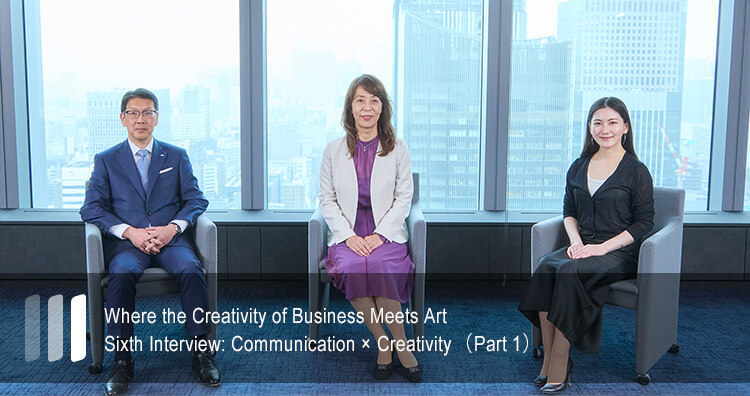
Where the Creativity of Business Meets Art Sixth Interview: Communication × Creativity (Part 1)
Today, we are joined by Dr. Mari Yoshitaka, a leading expert in environmental finance in Japan. Dr.

Where the Creativity of Business Meets Art Fifth Interview: Passion x Creativity (Part 1)
Today, we have the pleasure of hosting Mr. Shintaro Nakayama, representative of Life as Caravan.

Where the Creativity of Business Meets Art Fifth Interview: Passion x Creativity (Part 2)
Today, we have the pleasure of hosting Mr. Shintaro Nakayama, representative of Life as Caravan.

